BRIEFLY NOTED: For 2024-05-16 Th
Henry Farrell on LLMs as cultural technologies; Ian Morris on the shape of human history; investing in America; very briefly noted; Bruce Stirling on Frankenstein vs. cyberpunk; Apple’s unfortunate...
Henry Farrell on LLMs as cultural technologies; Ian Morris on the shape of human history; investing in America; very briefly noted; Bruce Stirling on Frankenstein vs. cyberpunk; Apple’s unfortunate hydraulic press iPad ad; What Factors Do We See That Might Upend America's Soft Macroeconomic Landing?; PODCAST: Hexapodia LIX: DeLong Smackdown Watch: China Edition; Doctor Frankenstein's Venture-Capital Pitch; & BRIEFLY NOTED: For 2024-05-10 Fr…
ONE VIDEO: Henry Farrell: Large Language Models as Cultural Technologies:
Farrell slides:
ONE AUDIO: Ian Morris & Rudyard Griffiths: What Shapes Human History:
<https://overcast.fm/+22osyjHcw>
ONE IMAGE: Investing in America
Very Briefly Noted:
Economics: This meme stock episode looks, to me at least, as if it is not a cultural phenomenon but rather front-runner wannabees thinking there will be a cultural phenomenon, and then momentum traders piling in: Matt Levine: AMC Rode the Meme Rally: ‘For AMC, the lesson is “as far as possible, do all of your financing in meme-stock-rally windows.” I suppose it’s hard to predict those, though, even for AMC…. On the one hand, it would be weird to have a months-long, 1,000%, massive-cultural-phenomenon meme-stock rally every few years. On the other hand, it’s not not weird to have a days-long, 100%, “oh this again huh?” meme-stock rally every few years. The 2021 meme-stock rally was mostly divorced from corporate fundamentals, but it was connected to something; there really was a cultural phenomenon. The 2024 one doesn’t even have that.nElsewhere, Bill Gross is selling GameStop straddles, so that’s nice for him… <https://www.bloomberg.com/opinion/articles/2024-05-15/amc-rode-the-meme-rally>
The sheer magnitude of the demand for US Treasury securities continues to leave me flummoxed: Justin Fox: US Debt Worries Everybody But Its Creditors: ‘Is $34.6 trillion a lot?… As Robert Burgess points out, debt markets aren’t acting like $34.6 trillion or 120% is a lot. Investors submitted bids for about 2.5 times the amount of 3-, 10- and 30-year bonds offered at the Treasury Department’s quarterly refunding auction…. Why are creditors so calm about the big US debt load?… Investors need somewhere to put all the new money created by central banks around the world during the pandemic (about $21.5 trillion by the US, China, the euro zone, Japan and eight other major developed economies)—and the US remains the default option for those with money that needs somewhere to go… <https://public.hey.com/p/tJLqciexsGzQvP8hNasYDnKB>
A sudden shift to a world in which there are major wars that stay subnuclear but nevertheless require a substantial manufacturing base has profoundly changed the game: Noah Smith: The Big Tariffs are here: ‘Biden just slapped a 100% tax on Chinese car imports…. These tariffs are… preventative. In the past we’ve seen examples of where China suddenly floods the U.S. or other countries with a massive amount of a certain export product—for example, excavators. Biden’s tariff will ensure that this doesn’t happen with EVs…. It’s reasonable to worry that without the competitive pressure from Chinese imports, stodgy old companies like GM and Ford—and even Tesla—will have far less reason to copy innovative Chinese features like screen-based controls…. But… Chinese car companies don’t have to make their cars in China…. [But] U.S. car companies—like European, Japanese, and Korean car companies—are… in grave danger, tariffs or no. The EV transition is happening, and China is the best at EVs. Unless they can raise their game, they are, in the words of Kevin Williams, “cooked”…. If U.S. heavy manufacturing withers and dies in the face of Chinese competition, the U.S. won’t be able to add much to its defense production capacity in a war. That could lead to a swift and devastating U.S. defeat at the hands of China…. [Thus] it’s probably necessary to erect trade barriers… [as] a cold, hard military reality. Opponents of protectionism… have no alternative…. There are multiple intersecting reasons for tariffs to go up, and most off these have bipartisan appeal. Biden’s big tariffs on Chinese EVs are likely only the start of a major shift in America’s trade policy… <https://www.noahpinion.blog/p/the-big-tariffs-are-here>
For the world as a whole, pretty much no matter how it ends in terms of industrial location, the U.S. and China both pouring money into Silicon Valley and Pearl River Delta engineering is almost surely going to be a truly wonderful thing. Technological progress benefits of Cold War, round II: John Thornhill: The great American innovation engine is firing again: ‘Federal government moves against Asian tech have brought investment rushing in…. Silicon Valley was mostly built with federal dollars…. By 1963, the Apollo space programme was buying 60 per cent of all the integrated circuits…. Once again, the US federal government is back in the game of funding technology in a big way, promising to unleash a further wave of private sector investment and innovation. The US has both the intent and the capability to reassert global technological leadership…. And Silicon Valley is likely to be among the biggest beneficiaries of that political ambition, even if some of its leading luminaries do not yet appreciate it. The rest of the world might have fondly hoped it would one day overtake the US in several strategic sectors, but other nations look more like the yapping dog failing to catch the car… <https://www.ft.com/content/0d39e8f0-38ba-40aa-8ec8-d04e82afb690>
Human Capital: Every professor’s major nightmare: Paul Musgrave: Professoring: My Job Is Spreadsheets: ‘I’ve mentioned before the meme that all white-collar jobs are either emails or spreadsheets. Professoring involves a lot of both. Today, my job was a lot of spreadsheets…. That’s, what, more than 20 columns? That’s one hell of a formula. And when you have one hell of a formula, you know what happens? You make errors…. I could screw up grade calculations, and that’s the worst feeling ever…. Over time I have put more and more of my process into the Learning Management Systems…. By keeping everything in one place, there’s less chances of fat-finger errors, lost hard drives, corrupted data—you name it.
There’s only one problem. Mostly LMSes suck. Really. They are all awkward fits. I know for a fact that many of the firms that make them (and these are multibillion-dollar companies) hire a lot of people with classroom experience, but the LMSes all still end up with the overall aesthetics and user experience of the Homermobile… <https://musgrave.substack.com/p/professoring-my-job-is-spreadsheets>
Journamalism: Another of those stories which shows the end results of that New York Times editorial assumption that knowing something about a subject makes you unreliable as a reporter, because you are biased: John Gruber: Pointless NYT Report Says Apple Plans to Improve Siri: ‘The Times sent me a news alert for this story — under the three-way byline of Tripp Mickle, Brian X. Chen, and Cade Metz — but… [not] a single sentence of news in the entire thing…. “Determined to catch up in the tech industry’s A.I. race, Apple has made generative A.I. a tent pole project — the company’s special, internal label that it uses to organize employees around once-in-a-decade initiatives…”. In Apple lingo, tentpole is used to describe features, not projects, and they aim to ship around three or four tentpole features in every major [software] release… the ones that get the most time in keynotes... <https://daringfireball.net/linked/2024/05/10/nyt-siri-story>
Remembering some of the bad old days: Ezra Klein (2007): Peretz Watch: ‘In this edition of my favorite blog, we find that raising billions of dollars to combat the AIDS pandemic, fight global warming, ease global poverty, and pursue conflict resolution demeans the dignity of the presidency and is, in the end, nothing more than typical Clintonian "scrounging for money." Note too the hilarious last sentence, where Peretz tries to combine a nod to the reality of Clinton's mega-philanthropy and a parting shot into one awesome clause…<https://prospect.org/article/peretz-watch/> Martin Peretz (2007): All About the Benjamins: ‘The differences between Truman and out last two exes are even more staggering—truly staggering—when you compare how Truman treated the dignity of the office in retirement to how [George H.W.] Bush and Clinton have treated it. They are always scrounging for money... shamelessly. And Clinton treats scrounging as one of the humane professions… <https://web.archive.org/web/20070315033649/http://www.tnr.com/blog/spine?pid=84902>
Death of the Internet: Many think that advertising is a wonderful source of money to boost externality-heavy sectors. But it is not clear to me whether those benefits outweigh the ens***ification costs: Noah Smith: The death (again) of the internet as we know it: ‘Using Google is now akin to a video game, where the challenge is to craft a search query that avoids ad spam and gets you to the well-hidden information that you actually want. That’s not the most fun video game in the world…. A few years back, Quora was a great place to find quick and in-depth answers to a lot of questions. As of 2024, however, it is…not…. Better… to simply withdraw from the public internet… spend one’s time chatting directly with friends and in small groups, having fun offline, and maybe watching TV or reading a book or a Substack. That sort of human interaction worked fine before the internet, and it will probably work just fine today… <https://www.noahpinion.blog/p/the-death-again-of-the-internet-as>
This sounds good: “cozyweb peace-room cultural production flywheels”. But how do you create them, at scale?: Venkatesh Rao: War Rooms and Peace Rooms: ‘Dark forest and cozyweb were… temporary conditions of retreat and that we should be figuring out how to reclaim the public [internet] for peace. But what does this even mean and how do you do it?…. By building up unstoppable momentum in cozyweb peace-room cultural production flywheels while the war rooms are busy fighting negative-sum wars…. Once the momentum is high enough, you can stop hiding and go public…. You actually end wars by making peace too valuable to miss out on… <https://studio.ribbonfarm.com/p/war-rooms-and-peace-rooms?lli=1>
Public Reason: Again: I am not sure what this mens, but it sounds good: Venkatesh Rao: ‘[SubStack] Notes is starting to feel like if twitter and LinkedIn had a baby and it grew up angst-literary and went to do an earnest low-paid editorial assistant internship at a New York publishing firm. Except New York has been devastated by a post-nuclear-war zombie apocalypse and everyone is armed with a machete. But they’re still trying to pitch magazine features and working on their Great Novel evenings and weekends. Between zombie slayings. While dreaming of defecting to the MFA world and workshopping their novel while fighting country zombies instead… <https://substack.com/@ribbonfarmstudio/note/c-56325547>
SubStack NOTES:
Enlarging the Human Empire: Cosma Shalizi sends me to:
Bruce Stirling (1996): Cyberpunk in the Nineties: ‘FRANKENSTEIN is "Humanist" SF… promotes the romantic dictum that there are Some Things Man Was Not Meant to Know. There are no mere physical mechanisms for this higher moral law—its workings transcend mortal understanding, it is something akin to divine will. Hubris must meet nemesis; this is simply the nature of our universe. Dr. Frankenstein commits a spine-chilling transgression, an affront against the human soul, and with memorable poetic justice, he is direly punished by his own creation, the Monster.
Now imagine a cyberpunk version of FRANKENSTEIN.
In this imaginary work, the Monster would likely be the well- funded R&D team-project of some global corporation. The Monster might well wreak bloody havoc, most likely on random passers-by. But having done so, he would never have been allowed to wander to the North Pole, uttering Byronic profundities. The Monsters of cyberpunk never vanish so conveniently. They are already loose on the streets. They are next to us. Quite likely *WE* are them.
The Monster would have been copyrighted through the new genetics laws, and manufactured worldwide in many thousands. Soon the Monsters would all have lousy night jobs mopping up at fast-food restaurants.
In the moral universe of cyberpunk, we already know Things We Were Not Meant To Know. Our grandparents knew these things; Robert Oppenheimer at Los Alamos became the Destroyer of Worlds long before we arrived on the scene.
In cyberpunk, the idea that there are sacred limits to human action is simply a delusion. There are no sacred boundaries to protect us from ourselves. Our place in the universe is basically accidental. We are weak and mortal, but it's not the holy will of the gods; it's just the way things happen to be at the moment. And this is radically unsatisfactory; not because we direly miss the shelter of the Deity, but because, looked at objectively, the vale of human suffering is basically a dump. The human condition can be changed, and it will be changed, and is changing; the only real questions are how, and to what end. This "anti-humanist" conviction in cyberpunk is not simply some literary stunt to outrage the bourgeoisie; this is an objective fact about culture in the late twentieth century. Cyberpunk didn't invent this situation; it just reflects it…. Hubristic mania is loose…. Eeverybody and his sister seems to have a plan to set the cosmos on its ear. Stern moral indignation at the prospect is the weakest of reeds…. We already live, every day, through the means of outrageous actions with unforeseeable consequences to the whole world…. We're just not much good any more at refusing things because they don't seem proper. As a society, we can't even manage to turn our backs on abysmal threats like heroin and the hydrogen bomb. As a culture, we love to play with fire, just for the sake of its allure; and if there happens to be money in it, there are no holds barred. Jumpstarting Mary Shelley's corpses is the least of our problems….
The idea that… Human Nature is somehow destined to prevail against the Great Machine, is simply silly; it seems weirdly beside the point. It's as if a rodent philosopher in a lab-cage, about to have his brain bored and wired for the edification of Big Science, were to piously declare that in the end Rodent Nature must triumph… <https://ia801209.us.archive.org/11/items/Interzone_048_1991-06/Interzone_048_1991-06.pdf>
Sterling, Bruce. 1991. "Cyberpunk in the 1990s." Interzone. 48, June. <https://ia801209.us.archive.org/11/items/Interzone_048_1991-06/Interzone_048_1991-06.pdf>.
Tech: Very clever indeed. The major flaw in the Apple ad is that in trying to appeal to people who like to make and experience art and music on the one hand, people who think it is cool to watch things get crushed by hydraulic presses on the other, and potential iPad buyers on the third, it would up disgusting and repulsing everyone:
Rezo Sixo Safai: I fixed Apple’s Ad:





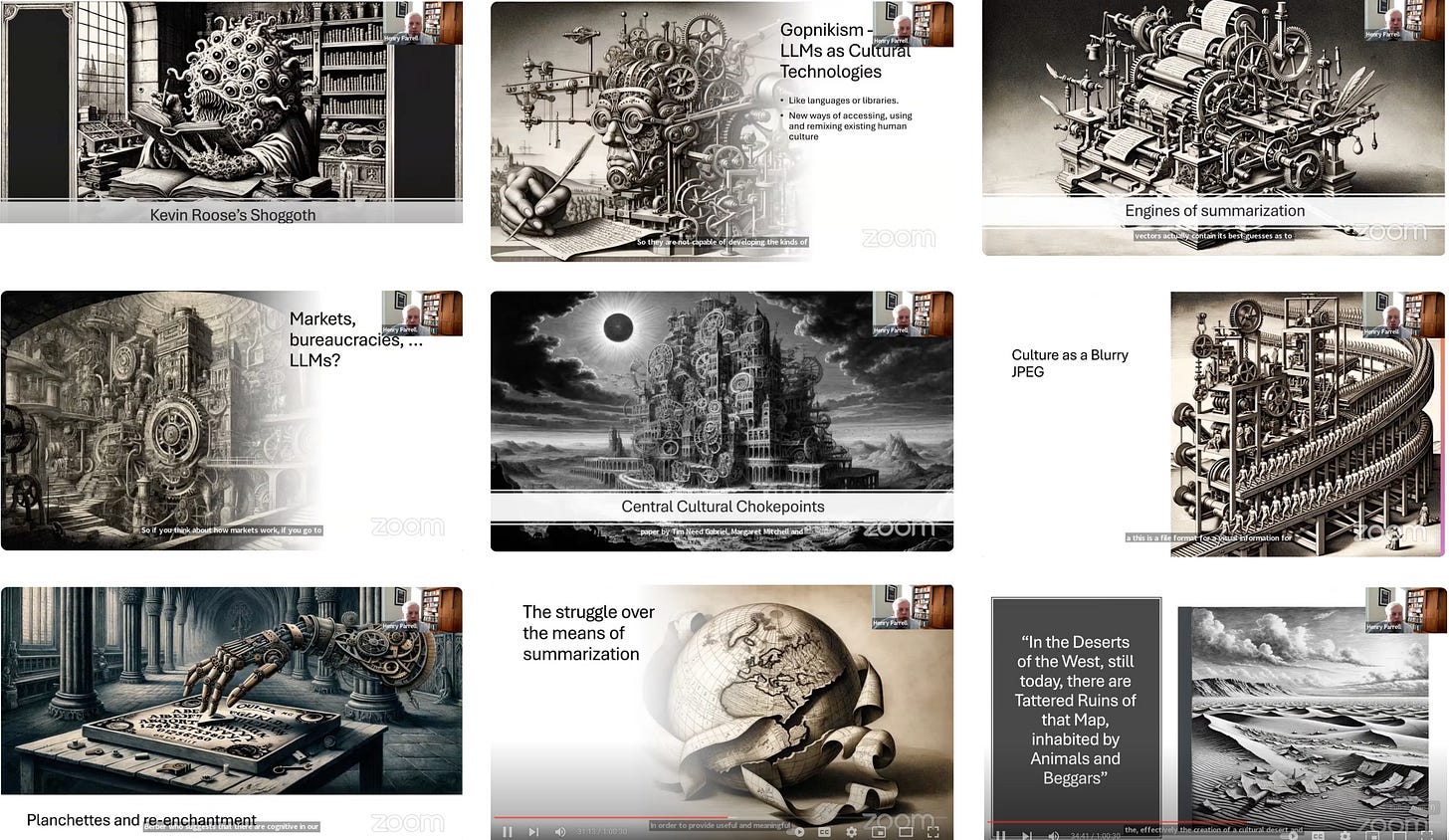
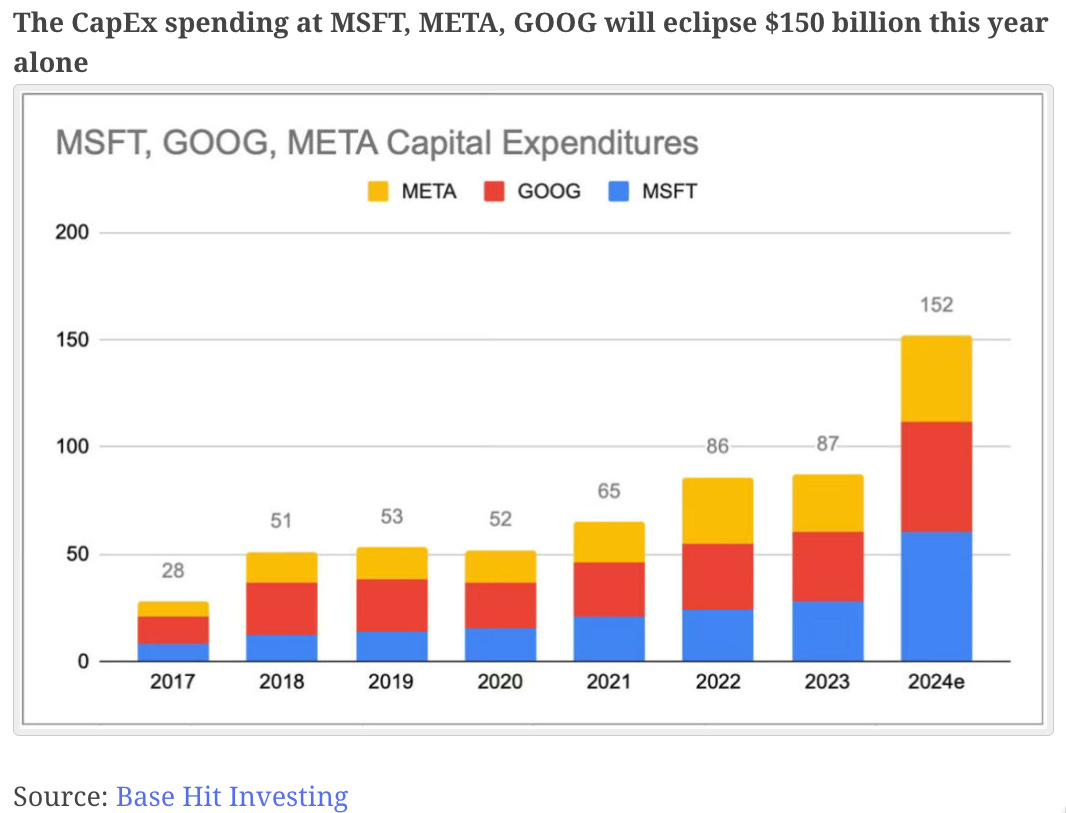
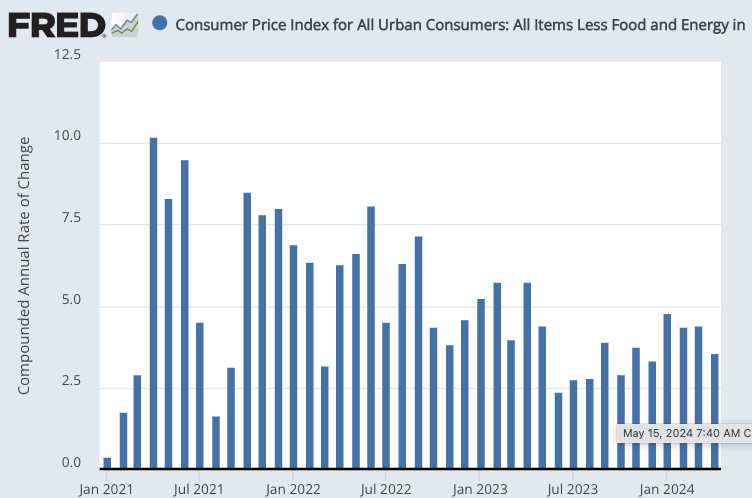

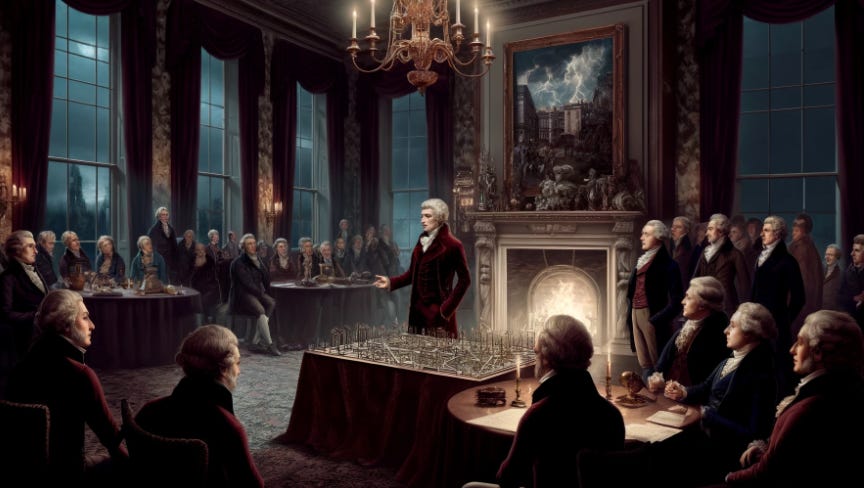
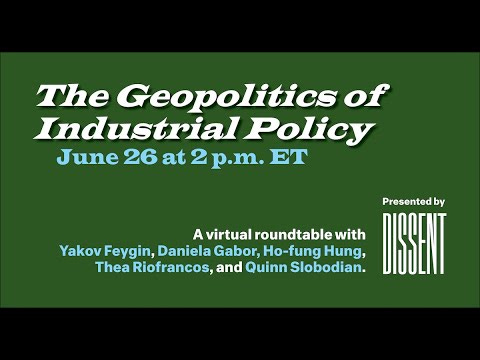
Didn't we learn in Trade Theory 101 that it is better to promote production of an activity, (taking as given that the activity should be promoted) with a production subsidy (that leaves producer indifferent between domestic and export sales) than tariffs? Noah writes as if he has never heard of that idea, or the Learner theorem (that an import restriction is the equivalent of an export tax) or that fiscal deficits mean capital inflows => encouragement of imports/discouragement of exports.
If industrial policy is worth doing, surely it is worth doing right.
Bruce Sterling (not Stirling). Correct in the reference.